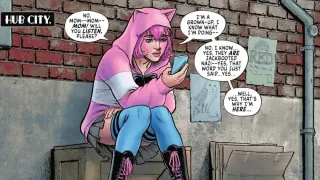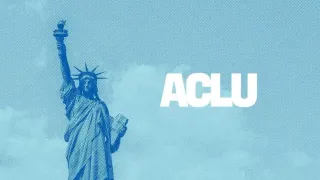May 15, 2024
Review: 'Danny Will Die Alone' Comically Hits Levels of Gay Dating Toxicity
Timothy Rawles READ TIME: 4 MIN.
One thing you will notice about the new Dekkoo series "Danny Will Die Alone" – besides the R-rated sex scenes – is that our protagonist breaks the fourth wall. Constantly. For anyone who remembers the first season of "Sex and the City," they tried the same thing but quickly switched up that format.
Much like that show, "Danny Will Die Alone" follows our late 30-something title character, played by the show's creator Jack Tracy, as he tries to navigate The Big Apple post-pandemic in an effort to find either love or sex, but not necessarily in that order.
The series is broken up into 10 episodes that range between eight to 10 minutes in length, perfect for those who need a break from Danny's cynical diatribes, which are comically observational bits on gay male dating tropes. There's an episode about a date with a jobless guy. There's one about a guy who is heavy into astrology, and another about a hot guy who believes in tarot. The list goes on.
Danny makes no bones about being an irritated, promiscuous bottom who has seemingly insatiable sexual needs. He is an "elder millennial," which, he contends, is the reason for his frequent erotic trysts. "I need a steady stream of sexual attention in order to feel any amount of self-esteem," he says in one episode.
Whether that's an attempt to get viewers to sympathize with Danny's narcissistic tirades, it still lacks a genuine excuse for his anger, and he is plenty angry. He jokingly alludes to "killing himself" several times in the series, which, one, isn't a joking matter, and two, isn't funny coming from such a self-aware character. I say that because in one post-credits scene, Tracy, as himself, does a PSA which first leads you to believe he's going to overlay a crisis number, but it turns out he's talking about not believing in the zodiac. It's calculated and kind of mean.
And that is part of the problem with "Danny Will Die Alone" – We are never sure if Danny is a stand-in for Tracy's real-life credos. Did he create this gay curmudgeon as a fictional character, or is it based on himself? Of course, they say every writer creates a character based on aspects of themselves, but if that's the case Tracy hasn't learned to compromise. Every date has some sort of problem with the other person, whether it be clinginess, fetishes, or political stances. Let's just say the title of this series might not be ironic.
Despite those criticisms, there is humor to be found in "Danny Will Die Alone." It's a salient deep dive into one individual's journey through the modern gay dating pool. Tracy lives to riff on archetypes that seem oddly nuanced, but might really exist. It's like Alice going through the looking glass and, instead of being curious, berating everyone for being different in an eight-minute Ted Talk. Honestly, it has its charm.
Tracy's writing is very clever, and his timing is up to scratch, even if some of the supporting actors derail the build-up to the punchlines with their shoddy performances. With a larger budget and some seasoned actors, Tracy could quite possibly create something comparable to a gay Larry David from "Curb Your Enthusiasm."
"Danny Will Die Alone" isn't perfect, and its tone is mean-spirited, but thanks to Tracy's talents it manages to survive under its own weight. You will most likely chuckle a few times at the people who live in Danny's world and the way he shames them. Or, like me, you don't laugh with him as much as at him, because, through it all, Danny is clueless that he is as cliched as the rest of them. In the words of gay activist Dan Savage, "It gets better," Danny.
"Danny Will Die Alone" will stream on Dekkoo starting May 16.






